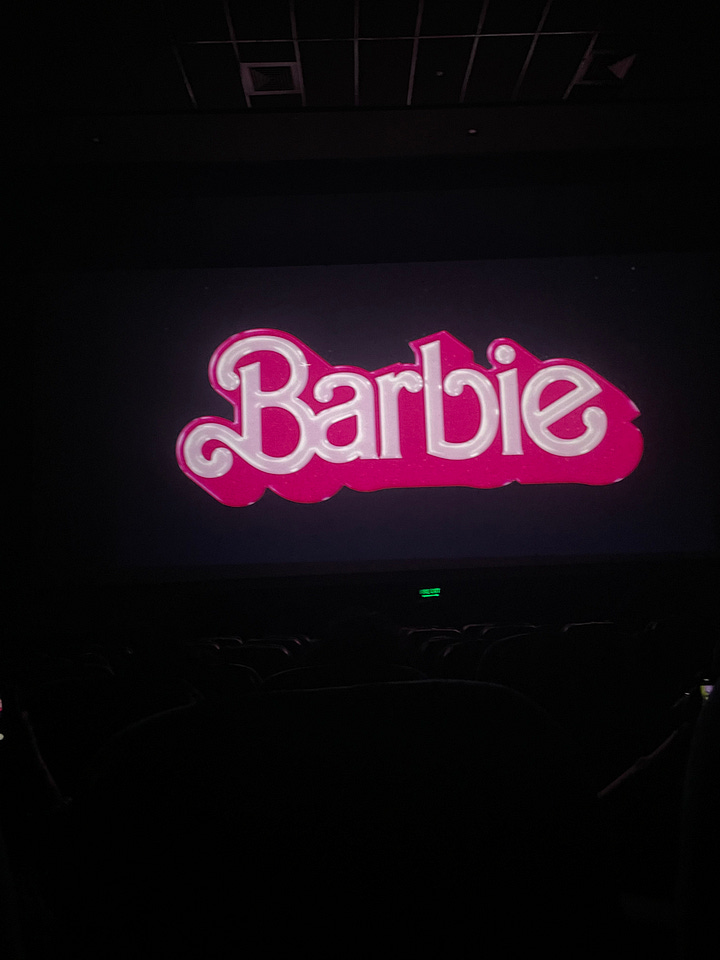How did I a known Cricket Fan, grow an interest even in the slightest in the Super Bowl? It was mainly limited to watching the halftime show featuring famous artists. However, this changed during this year's Super Bowl LVIII, and I attribute it to Taylor Swift being the “Monster on the Hill” as she states in her song Anti-Hero.
This Super Bowl set a record as the most-watched event in American television history, attracting over 123 million viewers. A significant factor contributing to this success was Taylor Swift and her relationship with Kansas City Chiefs player Travis Kelce. Millions of young girls, myself included, tuned in to NFL games to catch a glimpse of her. Although I didn't fully understand the game ( Still don’t), I found myself intrigued, especially about the team she was associated with.
For many girls, the NFL's effort to market the sport to a diverse audience, including girls, made it more appealing and less dismissive. Elyse Myer’s reel about this captures it well-
Despite some individuals expressing distaste for what they perceive as a dilution of the fanbase, it's crucial to see this as an opportunity for people to feel comfortable expressing interest in a particular established fandom. Adorable videos of fathers and daughters watching the game are enough proof that this needs to start.
In contrast, cricket, a sport close to my heart, has historically struggled to cater to its female audience. Marketing campaigns often target a narrow male demographic, fostering an unwelcoming environment for women. The prevalent joke about women being quizzed to name five players whenever they express a love for sports reflects a noticeable attitude. With women constituting over 48% of the population, cricket needs to become more accessible to them without undermining or belittling their involvement in the game.
Reflecting on my past writings in 2020 about breaking the glass ceiling, particularly advocating for a women's IPL, I expressed great anticipation for such an initiative. The introduction of the Women's Premier League (WPL) is indeed a step forward, but it's noteworthy that it took over 15 years of the men's IPL before this was realized. Rather than advocating for separate properties, the focus should be on leveraging existing platforms to attract the immense potential that a female audience holds. While some teams and individuals may have made occasional efforts to engage women, sustained initiatives are needed. Women’s cricket for the recognition it had to gain now, was a long hard walk which is nowhere to be done. We just need our sports stakeholders to start looking at half of the country more seriously.
It's frustrating how often men express surprise when I mention that I'm a cricket fan because I genuinely enjoy the game, not just fawn over the players. This reaction highlights a common misconception that women's interest in sports is primarily focused on the athletes rather than the sport itself. Despite the prevalence of this stereotype, many women, myself included, are passionate about the intricacies of cricket—the strategies, techniques, and the thrill of competition. Just as men can appreciate the sport for its complexities and excitement, women too find fulfilment in following cricket for its inherent beauty and competitive spirit.
The association of femininity with incapability in sports, exemplified by the unfair linking of wearing pink or being girly with incompetence, is a stereotype that needs to be dismantled. My own experience, preferring soccer shorts and sports while being labelled a 'tomboy,' highlights the pressure women face to adopt traditionally male traits for validation in sports.
Breaking down these gendered stereotypes requires a shift in perception and a broader acceptance of women as genuine sports enthusiasts. It's time to acknowledge and celebrate the diversity of fans, regardless of gender, and recognise that women's passion for cricket is just as valid and genuine as anyone else's.
“The worst kind of people are the ones that will make you feel bad about liking something”- Taylor Swift
This struggle against stereotypes extends beyond sports into pop culture. The recent disrespect faced by Barbie at the Golden Globes despite 2023 being a great year for women in pop culture, highlights the importance of celebrating femininity.
Similar biases are evident in literature, where the genre of Romance is often belittled as not constituting "good" literature. This raises the question: is this disparagement rooted in the fact that Romance has a predominantly female audience?
Why is it that, Women's criticism against misogynistic movies, which often depict women in demeaning or derogatory ways, is frequently dismissed as being overly sensitive or unable to handle the supposed "heat" of controversial content? Similarly, art that perpetuates harassment or objectification of women is often justified as entertainment rather than being critically examined for its harmful ideas.
Instead of brushing aside women's critiques, it's essential to listen to and validate their perspectives, recognizing the importance of promoting narratives that empower and uplift women rather than perpetuating harmful stereotypes.




As someone who once shied away from embracing girlishness due to societal pressures, I now fully embrace the multifaceted journey of girlhood. Girlhood is a celebration of resilience, identity, and authenticity, rejecting the notion that femininity is synonymous with weakness. Girlhood, with its ever-changing shades of "happy, free, lonely, confused in the best way," is a journey I fully embrace now. Why should I forfeit aspects of myself to earn validation in a patriarchal world? I revel in being a girl, finding joy in the art that celebrates femininity and encourages me to be unapologetically myself. If only sports offered the same empowerment to women.
On this Valentine’s Day, this "Barbie" proudly embraces her love for sports and Taylor Swift, unapologetically celebrating her multifaceted identity. Just as pop culture last year celebrated the various shades of girlhood, it's time for sports and the world to do the same. After all, why should we restrict the joy of fangirling to gender norms?





A 100 years from now, a similar blog with a slightly different verbatim but having the same essence will surface. Nothing changed during the past few centuries and nothing will change. The world will always remain the way dictated by the males.